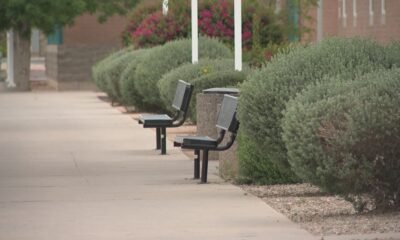Business
Expecting Parents Race to Stock Up on Baby Gear Before Tariff Price Hikes

Raising a child in the United States is becoming increasingly expensive, particularly in light of President Donald Trump’s recent tariff announcements that are expected to further inflate costs for new parents. With a baby due in mid-July, Sam Rutledge and his wife realized they needed to expedite their preparations, purchasing critical baby gear that is primarily produced overseas.
“These items are expensive as is, but with impending tariffs, we felt the urgency to secure them before prices skyrocket,” said Rutledge, a high school physics teacher. The first year of a child’s life averages a staggering cost of $20,384, according to data from Baby Center. With tariffs varying from 10% to as much as 145% on certain imports, the financial burden on new parents is expected to increase dramatically.
Approximately 90% of essential baby care products, from diapers to strollers, are manufactured in Asia, predominantly in China, as stated by the Juvenile Products Manufacturers Association. Lisa Trofe, the executive director of the association, noted that overseas manufacturing has been a long-standing norm in this industry.
Steven Dunn, CEO of Munchkin Inc., recounted how his company transitioned from U.S. manufacturing to offshore production over the last few decades. Despite attempts to diversify suppliers to countries like Vietnam and Mexico, he has been met with challenges. Dunn indicated that Munchkin might run out of some products within three months due to the halted orders from China and an indefinite hiring freeze at their California headquarters.
“We cannot pass these tariff costs to customers via price increases,” Dunn emphasized. Many companies, such as Graco and Chicco, have yet to comment on these tariff implications, but the Juvenile Products Manufacturers Association is advocating for exemptions, citing the essential nature of baby products.
Nurture&, a nursery furniture company, is attempting to manage the impact of tariffs by lowering prices temporarily on certain items. Chief Merchant Jill Gruys remarked on the importance of affordability during this sensitive life stage for families. However, the company warns that these lower prices may not persist beyond April.
Elizabeth Mahon, who owns Three Littles, a baby store in Washington, expressed concern about the tariffs potentially pricing essential baby supplies out of reach for many families. Mahon, who also volunteers at the DMV teaching car seat safety, fears that increased costs might discourage families from purchasing crucial safety gear.
“Toys are one thing, but access to car seats is vital to prevent serious injuries,” she noted. She indicated that some manufacturers are already planning steep price hikes, leaving her small business grappling with the impact of increased costs.
Molly Ging, owner of The Little Seedling baby shop in Michigan, voiced similar worries as she manages inventory amid price increase notifications. “Managing this situation is challenging, and my staff of moms is concerned about job security,” she said. The urgency of purchasing ahead of potential price hikes has led to a flurry of business, but uncertainty looms regarding future demand and supply.


















